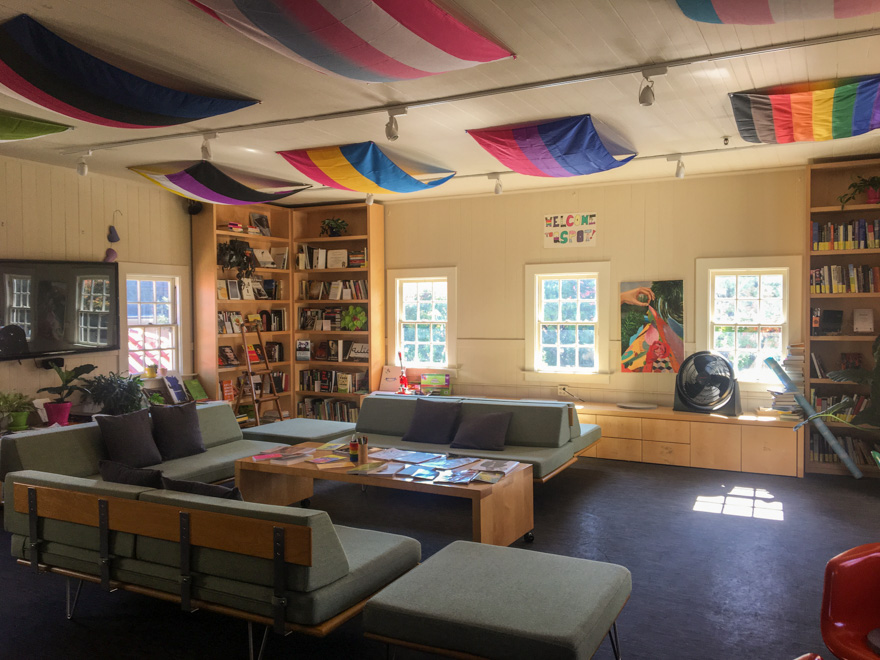On Tuesday, Melody Yang ’21 and a freshman international student led the first-ever meeting organized by Stanford Students for Queer Liberation (SSQL). While the organization has existed for several years, it has kept a lower profile in the past. Yang and the freshman said they hope to reinvigorate the group and give it an active presence on campus.
They added that they seek to reform SSQL because they believe existing queer resources on campus, such as Queer Student Resources (QSR), are not engaging in enough activism to support the queer community.
“However, during my six weeks here, I felt like the queer groups on campus are more oriented toward being support groups,” said the freshman student, whose name has been withheld due to privacy concerns.
“At home, in Turkey, two groups that helped me the most were LGBTQ activism groups,” they added. “In those groups, I could make my voice heard, I could feel present and I could feel un-oppressed. It’s for that reason that we wanted to restart SSQL.”
The student and Yang said they acknowledge that QSR has done important work for the queer community on campus. QSR has hosted queer poetry workshops, authors of queer literature and speakers who talk about current issues facing the queer community.
On Nov. 12, QSR will host a panel of legal experts to discuss the recent memo circulated by the Department of Health and Human Services, which proposes erasing federal recognition of transgender people. In a recent email, QSR and the Weiland Health Initiative declared that “Trans and intersex and non-binary people are here. We exist and we’ve always existed and we will continue to exist. We will not be erased.”
While QSR has run many events, Yang and the freshman speculated that QSR might be limited in the actions it can perform because it is a department of Student Affairs.
“Because [QSR is] part of Stanford, I think that it’s more difficult for them to criticize Stanford,” Yang said. “However, students can do so freely. We can do more work supporting outside queer organizations [and] also take more radical actions than QSR.”
In addition, Yang and the freshman said they believe the queer community doesn’t adequately represent minority groups. They hope to use SSQL as a platform to increase minority representation within the queer community.
“During our first meeting, many people expressed concern that the Pride Parade is centered on gay white cisgender males,” the freshman said. “We want to change that. We want to try to get connected with other queer people-of-color groups.”
One member at the meeting worried that “Give Face,” a drag show on campus which hopes to raise awareness of gender inclusivity, doesn’t feature enough people of color.
The co-leaders said they also hope to combat virtue signaling on campus, as many allies of the queer community don’t support the queer community in practice but want to look like they do. For example, they noted that many people ask others for their pronouns during orientations and icebreaker activities but repeatedly fail to refer to them by their correct pronouns later.
“We want to host educational events about how people can be better allies [of the queer community],” Yang said.
Other educational event ideas proposed during their first meeting include holding reading groups about queer theory, creating art projects in support of queer issues in White Plaza and partnering with other campus organizations to host a Trans Awareness Week.
In addition to hosting educational events, the leaders hope to host several events to support the queer community, both on campus and off-campus. One planned event is a clothing swap for transgender people. Another project they proposed is working with queer graduate student groups such as GradQ to desegregate graduate student housing, which they said is often segregated by gender.
“We do not want to adapt to the status quo — we believe in social change for the liberation of queer people,” the leaders wrote in an email advertising the group’s first meeting.
Contact Ricky Grannis-Vu at rickygv ‘at’ stanford.edu
This article has been updated to redact the name of the freshman student who led the meeting alongside Melody Yang ’21 due to privacy concerns.
